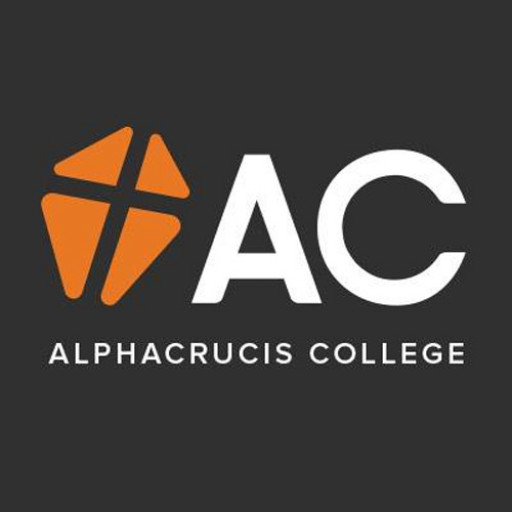Photos of university / #stanford
Religious Studies at Stanford University offers an interdisciplinary exploration of the world's diverse religious traditions, beliefs, and practices. This program aims to deepen students' understanding of the role religion plays in shaping cultures, societies, and individual identities across history and in contemporary contexts. Through a combination of coursework, research, and experiential learning, students examine topics such as sacred texts, rituals, ethics, philosophy, and the social functions of religion. The curriculum encourages critical analysis and comparative perspectives, enabling students to appreciate the complexity and diversity of religious phenomena worldwide. Students have access to a distinguished faculty renowned for their scholarship and research in fields including Asian religions, Christianity, Islam, Judaism, Buddhism, and new religious movements. The program emphasizes both historical and contemporary perspectives, fostering skills in textual analysis, ethnography, and critical thinking. Students are encouraged to engage in internships, study abroad programs, and community service to gain practical experience and a global outlook. The major prepares graduates for careers in academia, education, public policy, non-profit organizations, journalism, and interfaith dialogue. At Stanford, the Religious Studies program cultivates a nuanced understanding of faith traditions, their cultural significance, and their impact on societal issues, equipping students to navigate and contribute thoughtfully to an increasingly interconnected world.
The following requirements are in addition to the University's basic requirements.
-
Residence
Each student completes three years (nine quarters) of full-time study, or the equivalent, in graduate work beyond the B.A. degree, and a minimum of 135 units of graduate course work (excluding the dissertation). -
Required Courses
The 135 units of graduate course work must include the following:-
Course List Units RELIGST 304A Theories and Methods 4 RELIGST 304B Theories and Methods 4 RELIGST 391 Teaching Religious Studies 3 RELIGST 399 Recent Works in Religious Studies 1-2 - Two courses in an area outside the student's field.
- The remainder of the course work is individually designed, in consultation with the adviser.
-
-
Languages
Each student demonstrates a reading knowledge of two foreign languages, including French or German. One of those language requirements should be fulfilled by the time of advancing to candidacy at the end of the second year. Competence in the second language must be demonstrated at the time of the qualifying examination. Each student also demonstrates reading knowledge of other ancient or modern languages necessary for the field of study, area of specialization, and dissertation topic. -
Candidacy
At the end of each academic year, the department's faculty recommend second-year students for candidacy on the basis of all relevant information, and especially on the student's candidacy dossier that includes the approved declaration of an area of specialization, certification for one foreign language, and two substantial papers written for courses during the previous two years. Students are required to take RELIGST 304A Theories and Methods, RELIGST 304B Theories and Methods, RELIGST 391 Teaching Religious Studies, and RELIGST 399 Recent Works in Religious Studies prior to candidacy. -
Paper-in-Field
During the third year, under the supervision of their advisers, students prepare a paper suitable for submission to an academic journal in their field. The paper is read and approved by at least two faculty members in the department. Students are encouraged to register for RELIGST 392Paper in the Field while working on the paper. -
Teaching Internship
At least one teaching internship under the supervision of faculty members is undertaken at a time negotiated with the Graduate Director. Students receive academic credit for the required internship, which is a part of academic training and not of employment. -
Qualifying Examination
To qualify for writing a dissertation, the student must pass a comprehensive examination in the chosen field and the area of specialization, typically during the first quarter of their fourth year. The student must complete the second language requirement before taking the qualifying examination. The qualifying examination is normally conducted by a committee of at least three Academic Council members of the department, one of whom is the adviser. One faculty member may be from outside the department with permission of the Director of Graduate Studies. -
Dissertation
The dissertation contributes to the humanistic study of religion and is written under the direction of the candidate's dissertation adviser and at least two other members of the Academic Council. The University Oral examination is a defense of a completed draft of the dissertation.- Dissertation Committee—The dissertation committee is formed after successful completion of the qualifying examinations. It is normally composed of the dissertation adviser and at least two Academic Council members of the Religious Studies department. One non-departmental faculty member may serve as a reader when approved by the Director of Graduate Studies.
- Dissertation Proposal—Candidates submit their dissertation proposal in consultation with their advisers. It is read and approved by the three members of the dissertation committee.
-
University Oral Examination
This examination, required by the University of Ph.D. students, is a defense of a completed draft of the dissertation. The composition of the examination committee is set by University regulation: five or more faculty, normally all of whom are members of the Academic Council, one of whom must be outside the department to serve as chair of the committee. Normally, the examining committee includes all members of the dissertation committee. A majority of those voting must be Academic Council faculty from within the department.
Requirements
- completed application form (including indication of intended field of study in the department)
- application fee (pay in online application)
- statement of purpose (upload to online application)
- 2 official copies of each transcript (mailed directly to the department)
- graduate record examination (gre) scores (no more than 5 years old)
- three letters of recommendation (via online application)
- writing sample of recent work on a religious studies topic (upload to online application)
- test of english as a foreign language (toefl)
Scholarships
All students receive five years of fellowship funding, which includes teaching assistantships and tuition for the academic year. In addition, students receive three years of summer support.
Religious Studies at Stanford University offers a comprehensive and interdisciplinary approach to understanding the diverse beliefs, practices, and historical developments of religions around the world. The program aims to explore religious phenomena through various academic lenses such as history, anthropology, philosophy, theology, and literature, enabling students to develop a nuanced understanding of faith traditions and their impact on societies and cultures throughout history. The curriculum includes courses in ancient and modern religious traditions, critical analysis of sacred texts, examinations of religious ethics and practices, and studies in contemporary religious issues. Stanford’s faculty comprises renowned scholars dedicated to advancing knowledge and understanding in the field of religious studies. Students have opportunities for original research, engage in class discussions, and participate in seminars and workshops that foster critical thinking and analytical skills. The program is designed to prepare students for diverse careers, including academia, journalism, public policy, nonprofit organizations, and religious leadership. It emphasizes the importance of cultural literacy and ethical awareness in our increasingly interconnected world. Undergraduates can often choose to major or minor in Religious Studies, with pathways that allow specialization in areas such as East Asian religions, mysticism, religious history, or contemporary religious movements. Graduate students pursuing advanced degrees benefit from a rigorous research environment, access to extensive university resources, and collaboration with leading experts in the field. The university also encourages engagement with local religious communities and provides opportunities for experiential learning. Overall, Stanford’s Religious Studies program promotes a scholarly understanding of religion that respects diversity and encourages inquiry into fundamental questions about human existence, purpose, and spirituality.










